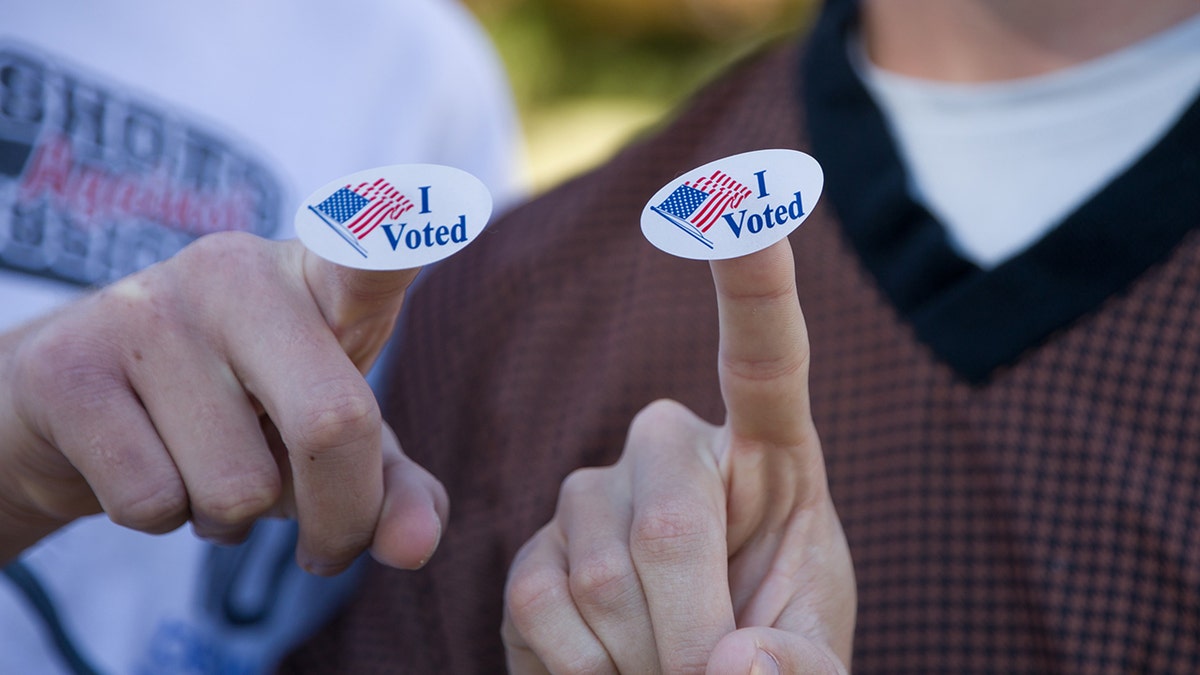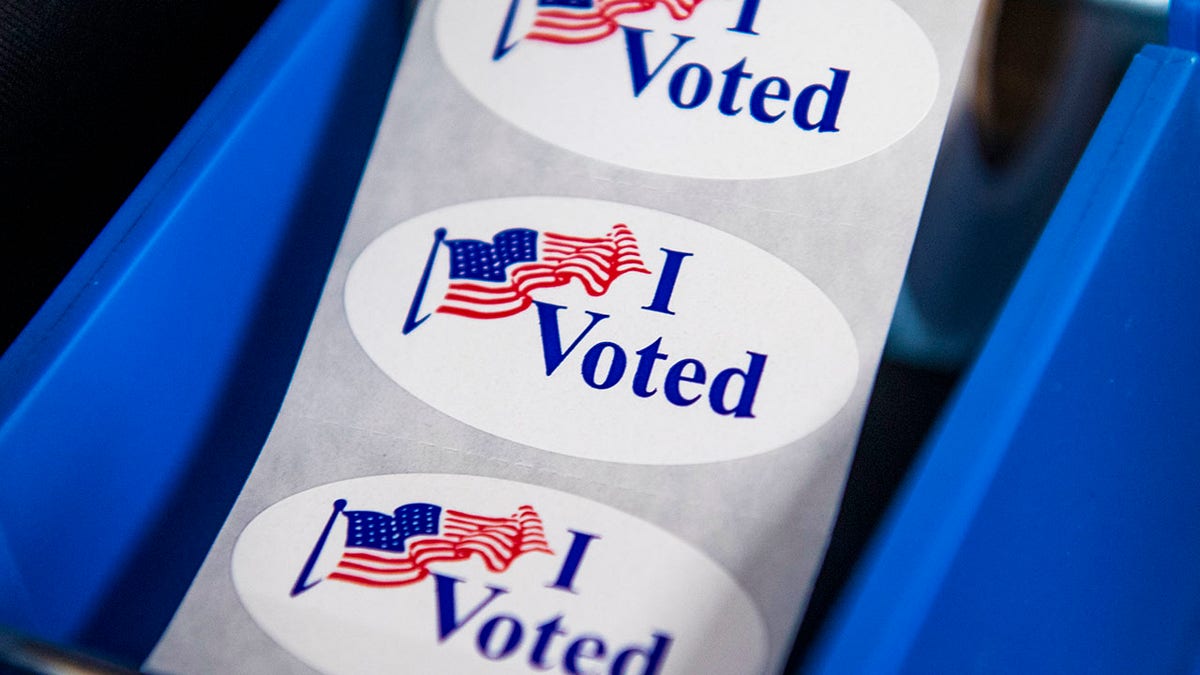Fox News Flash top headlines for August 31
Fox News Flash top headlines are here. Check out what's clicking on Foxnews.com.
A pro-Democrat super PAC is hoping to shame young voters into heading to the polls this November, telling them that if they do not vote, everyone will be able to know it.
Priorities USA is using ads currently running on social media platforms like Facebook, Instagram, and Snapchat, as well as YouTube and streaming music services. They employ a technique they refer to as "social pressure," to drive voter turnout, Axios reported.
"Who you vote for is secret. But whether you decide to cast a vote or not is public," one ad says. "So keep making your community proud this November."
Another ad shows a stick figure named Bob, which it uses as an example of someone who failed to maintain an up-to-date registration.

A new ad campaign by a pro-Democrat super PAC is looking to shame people into voting by telling them whether they vote is public record. (Xinhua/Dan Tian via Getty Images) (Photo by Dan Tian/Xinhua via Getty) (Xinhua/Dan Tian via Getty Images)
"This is Bob," it says. "Bob liked posting that he voted in 2020 ... But we know he let his voter registration get out of date. Don't be like Bob."
Priorities USA executive director Aneesa McMillan described the approach to Axios as "a light-hearted, almost comical way of addressing it in a sense of trying to get folks to understand kind of the community aspect of voting."
WISCONSIN JUDGE WILL ALLOW HELP FOR DISABLED VOTERS RETURNING THEIR BALLOTS
Fox News reached out to Priorities USA asking if they have seen an uptick in voting from such a strategy in the past. They did not immediately respond, but their website notes that in the 2020 election they had 492 "persuasion and mobilization ads" that were "tested in randomized control areas."
The site also boasts that the organization has 582 "progressive activists trained on digital advertising best practices."

Priorities USA hopes that informing registered voters that whether they vote is public record will inspire them to cast ballots this November.(Photo by Paul Bersebach/MediaNews Group/Orange County Register via Getty Images) (Paul Bersebach/MediaNews Group/Orange County Register via Getty Images)
CLICK HERE TO GET THE FOX NEWS APP
"We have an entire research apparatus that we have built upon since 2017 to make sure that our targeting and tactics are accurate," McMillan said.
According to Axios, Priorities USA spent nearly $200,000 on this latest ad campaign, and that data shows that it is targeting areas in the hotly contested states of Arizona, Michigan, Nevada, Pennsylvania, and Wisconsin. Facebook and Instagram ads are specifically being featured in zip codes that include universities and urban areas -- both of which tend to lean towards Democrats – while rural areas – often Republican – are excluded.















































